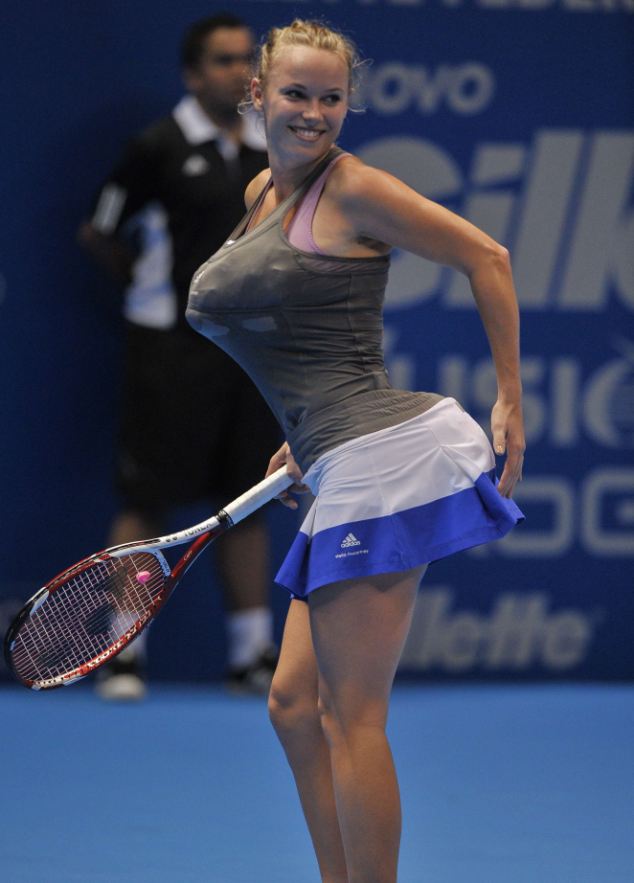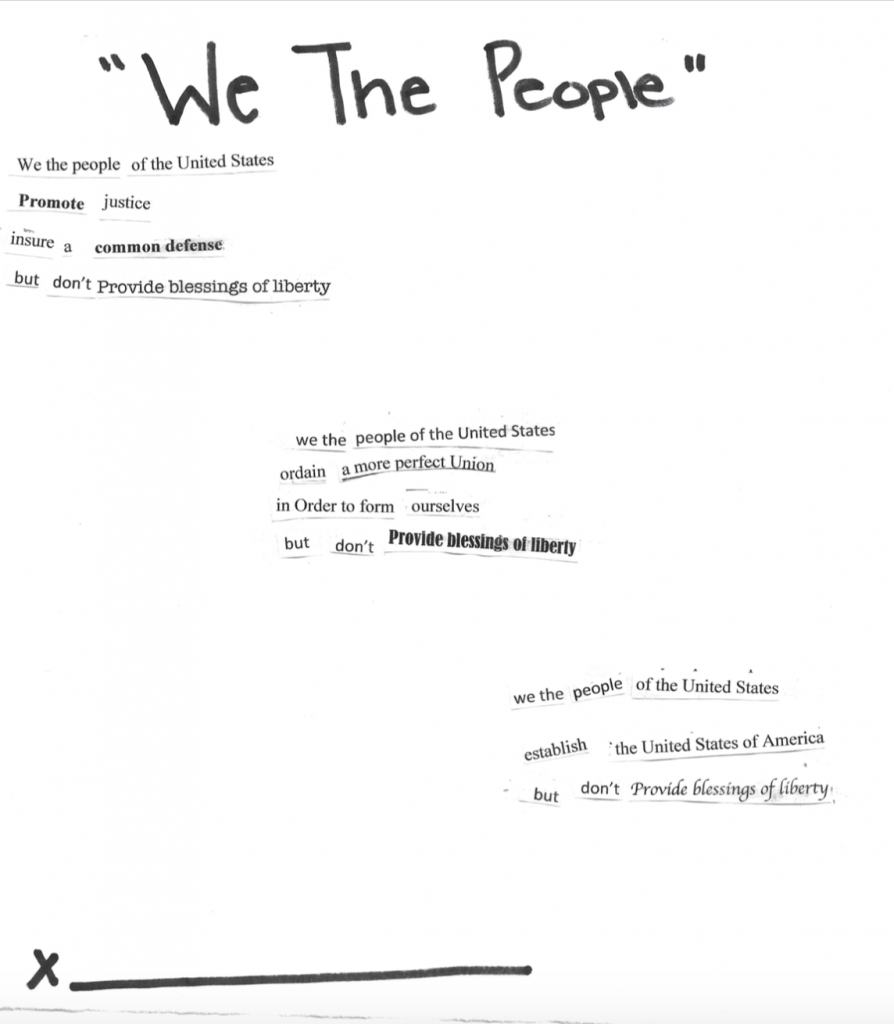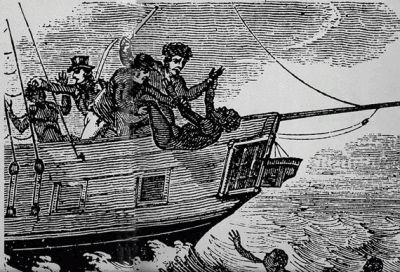The “Oxford English Dictionary” defines gender as being “Either of the two sexes (male and female), especially when considered with reference to social and cultural differences rather than biological ones. The term is also used more broadly to denote a range of identities that do not correspond to established ideas of male and female.” Today, we look at gender so differently, due to the diversity throughout the world, the ways people manipulate gender, and how one chooses to identify themselves. There have been so many new genders that people choose to identify themselves, for example, according to “7 Genders Beyond Male and Female”, new genders people choose to identify themselves with are “agender, cisgender, genderfluid, genderqueer, intersex, gender non-conforming, and transgender.” Gender plays a major role in the everyday lives of people and is also very important within literature and how we read and interpret ideas.
Many words starting with gen- like general, gender, and genre are from the Latin word genus, generis which means “class, race, sort”. Gender and genre were both taken from the French language, but at different times gender is older from the Medieval era, while the genre is from the era of French cultural dominance, surrounding the time of Napoleon and the rise of the Democratic-Republic in France. It is related to the Greek root gen- (to produce), appearing in gene, genesis, and oxygen. It also stems from the Latin genus (genitive generis) “race, stock, family; kind, rank, order; species,” also “(male or female) sex,” from the root gene- “give birth, beget,” with derivatives referring to procreation and familial and tribal groups.
Gender has affected who gets to write and publish literature, which texts are assigned in a classroom setting, and how we, as readers, interpret any given text. Throughout history, gender has influenced whether or not we pick a certain text, what ideas we take from texts, and what texts we teach and what we censor. Gender affects what literature we have access to as well. Some stereotypes that revolve around gender within literature include; literature that is written by women is too emotional and boring, men only enjoy reading about literature involving sex, women do not enjoy reading political literature, etc. Certain works of literature written by men are somehow universal and relevant to everyone, but books written by women are only interesting to women. These stereotypes are directly based on gender and are frankly derogatory in nature. In fact, picking something to read that goes against these stereotypes brings about new information to the reader that they may have never known before. For example, if a man picks out a book written by a woman, going against the stereotype stated earlier, and finds the novel very interesting and enjoyed reading it, he has now expanded his background of knowledge in literature.
Gender plays a very important role within the background and history of the main character’s within literature as well. Some texts throughout literary history base their content on gender through the entirety of their story. For example, Nathaniel Hawthorne’s The Scarlet Letter is entirely based on the fact that the main character is a woman and the stereotypes surrounding women. The basis of the story is about the main character, Hester Prynne, who is shamed by her entire town for being an adulterer. She has to wear a letter A on her chest which is sewed into her dress, to show everyone that she is labeled an adulterer. The man she had an affair with remained nameless however the town did not go after him, only the woman. The town was only outraged that a woman had committed adultery, but the man got off without even a slap on the wrist. In literature, men are celebrated for being dominant and acting on their sexual desires while women are shamed for them.
In many instances throughout literature, authors may choose to write about stories of their own that can affect the reader. Novels like Maxine Hong Kingston’s, The Woman Warrior: Memoirs of a Girlhood Among Ghosts and Mean by Myriam Gurba are examples of literature that may help women identify themselves. Not only does The Woman Warrior shed light on cultural issues, such as growing up Chinese-American, but gender issues as well, such as the role of Chinese women in society. The memoir is based on different women who have a significant effect on the narrator’s life; her mother, her aunt, her sister. The memoir is also based around a male dominant background surrounding these women and how they overcome that dominance and thrive. For example, we can see the male dominance in the book when the narrator’s mom starts telling her the story of her aunt and how a man might have sexually assaulted her and impregnated her. Mean speaks on the aspect of women as objects and property to men. The main character, a woman, is sexually assaulted and speaks obsessively about the sexual roles of men and women. Gurba challenges the audience to think differently about sexual assault in how she is playful with the words and phrases she uses to describe sex. She pushes us to think about how sexual assault can change us, and specifically how it has changed her take on sex.
In Lorraine Hansberry’s play, A Raisin in the Sun, the author tells a story about the Youngers, a low-income African American family depending on a life insurance check to support them. The play follows the Younger family, as they try to accomplish their goals and dreams while being discriminated against based on their race, class, and gender. An example where we see gender come into play is through the female character Beneatha. Beneatha has dreams and aspirations of becoming a doctor but her brother Walter and the cultural society she lives in makes fulfilling her dreams problematic. In the 1960s, there were not many opportunities for women to become doctors. It was typically an occupation white men would take up which in turn made it very difficult for a woman to pursue. For example, according to the article “A Black Community”, “It took decades for the general female population in the United States to attain the gender parity seen in professional, technical, and managerial occupations among blacks in Baltimore in 1960. Between 1972 and 2002, U.S. women’s share of total employment in the managerial, professional, and technical occupations increased substantially. The proportion of women employed in executive, administrative, and managerial positions more than doubled over that period, from 19.7 percent to 45.9 percent.” Furthermore, since Beneatha is an African American woman, this puts her at more of a disadvantage since she did not have an equal opportunity to education or equal access to finding a job in the market.
Walter and Beneatha’s relationship is an excellent example of sexism in literature between men and women. Walter is an example of a man who doesn’t support his sister’s decision with going to school and pursuing the career of her dreams. He said to Beneatha, “Ain’t many girls who decide to be a doctor” (36) and continued to question her decision to go to medical school by asking, “Have we figured out yet just exactly how much medical school is going to cost?” (36). In our opinion, Walter is being sexist towards Beneatha because he assumes that she will not be able to handle it since it was typically a man’s job.
In addition, Beneatha had little to no interest in getting married because she was so determined to become a doctor. Later, Walter tells Beneatha to “… go be a nurse like other women-or just get married and be quiet” (38) but she challenges the gender norms of women getting married at a young age and having kids by continuing her career. Not only did she stand up to Walter but she stood up to Ruth as well when she asked Beneatha when she is going to get married repeatedly. Beneatha responded to Ruth, “Get over it? What are you talking about, Ruth? Listen, I’m going to be a doctor. I’m not worried about who I’m going to marry yet – if I ever get married” (50). A Raisin in the Sun is able to help readers understand the importance of gender because the audience can see that Beneatha is standing up for what she believes in and what dreams she wants to accomplish, as a woman of color.
Citizen is an American Lyric written by Claudia Rankine, about different scenarios that everyday people go through. In the lyric, we see Black women being discriminated against, this time publically. Don Imus, an American radio personality, called the Rutgers women’s basketball team, “Nappy headed hoes” (42). Rankine might have included this in the lyric because she wanted to show the effects that the comment made on the team. Imus was discriminating against these women by calling them hoes. A basketball team of men would not have been slut-shamed like these women were.

Another example that we see in Citizen, is the section about Serena Williams and her outburst during one of her tennis matches. The entire world depicted Serena as an outraged woman of color. Serena’s gender affects her whole career because the media and the news tend to play around with the fact that she is a woman and it is assumed that women are not allowed to have outbursts in public. For example, Rankine states, “Tennis superstar John McEnroe, given his own keen eye for injustice during his professional career, was shocked that Serena was able to hold it together after losing the match.” (27). The picture above of Caroline Wozniacki is showing her making fun of the way Serena Williams looks. The act of Wozniacki dressing up to discriminate against the way black women look would never have happened if this was a man. If a man ever made fun of another woman or man by dressing up like them, no one would ever take it seriously or even go to the news about it. Caroline Wozniacki wanted a reaction from Serena, and she definitely got it.
As readers, we are able to identify the different conflicts that characters might endure throughout novels or plays in literature. Gender is such a powerful word that has been able to affect literature and challenge the reader to think more deeply about the piece of literature they might be reading. In more recent years, the idea of gender has changed and drastically evolved, which is why it is hard to understand the meaning and interpret new concepts of gender that are different from the past. In addition, there are many different gender identities and literature has been able to capture the gender norms that are often prevalent in society today. Gender can help us read different kinds of literature with different understandings. Whether it is helping us to see the difference between different genders, or helping us understand the perspectives of each gender and what they might go through, gender is a keyword that is used to help readers understand literature in a more nuanced way.
Works Cited
“Discover the Story of English.” Home : Oxford English Dictionary, www.oed.com/.
Hansberry, Lorraine. A Raisin in the Sun. Methuen Drama, 2018.
Hawthorne, Nathaniel. The Scarlet Letter: a Romance. Vintage, 2016.
Mahmoud, Jessica. “7 Genders Beyond Male and Female.” Uloop, 2015, www.uloop.com/news/view.php/161240/7-Genders-Beyond-Male-and-Female.
McKay, Ruth B. A Black Community with Advanced Labor Force Characteristics in 1960. 2007, www.bls.gov/opub/mlr/2007/02/art1full.pdf.
Rankine, Claudia. Citizen: an American Lyric. Penguin, 2015.
Tennis-Brazil-Wozniacki-Exhibition, December 7, 2012 AFP/Getty Images




